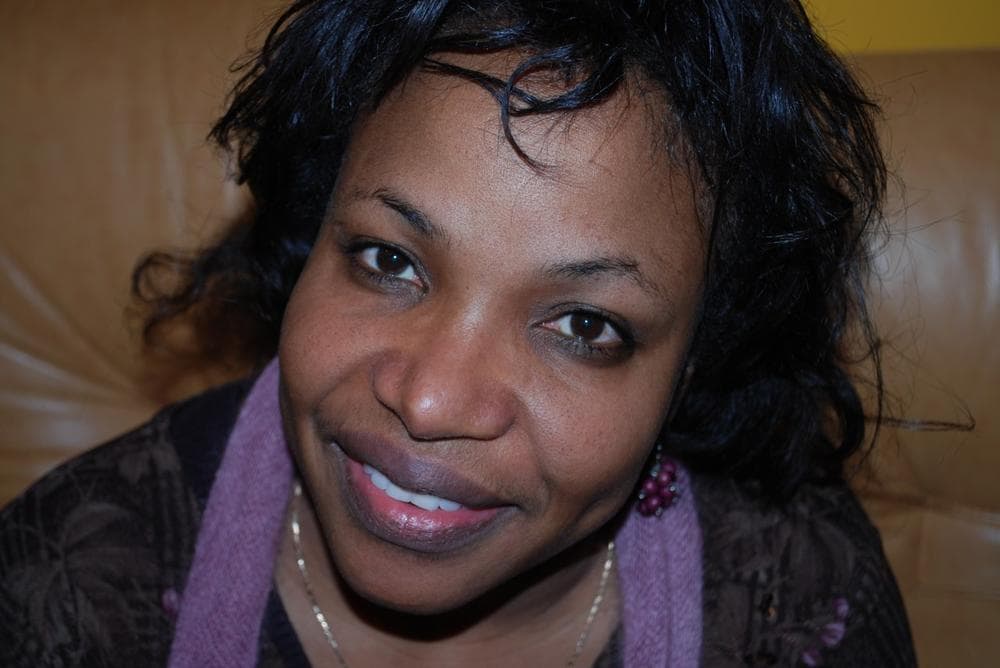Advertisement
Haitians Hold Uncertain Place In Immigration Line
Resume
Elsie Metayer lives in a two-story Victorian in Milton. Her colorful home is decorated with art from Haiti, and pictures of family. Her parents sit bundled on the couch, while she talks about her guilt that she's here in Milton, while her three siblings are in Port-Au-Prince, sleeping outside their ruined homes.
"Knowing them, they won't be able to live, they won't be able to survive," Metayer said. "They have nowhere to go. They cannot work. They cannot do anything."
Like many Haitian families around Boston, Metayer and her parents want to bring their relatives to the United States. The desperation in Haiti after last month's earthquake has opened up a debate: Should the U.S. allow more Haitians to immigrate? The federal government has said that immigration would not be part of the relief effort in Haiti, but many Boston Haitians are looking for an exception.
"Every day we hear, 'My families are sleeping in the streets. My family doesn't have any medicine,' It's every day. Eight hours a day," said Marjean Perhot, director of Refugee and Immigrant Services at the Catholic Charities of the Archdiocese of Boston. "It is so difficult to have to tell people: I'm sorry, right now, there's not a legal way to expeditiously get your family out of the streets and into safety."
"It is so difficult to have to tell people: I’m sorry, right now, there’s not a legal way to expeditiously get your family out of the streets and into safety."
-- Marjean Perhot, Catholic CharitiesThe Obama administration has allowed Haitian immigrants already in the U.S. to stay for 18 months, under so-called "temporary-protected status." The government also sped up paperwork for Haitian orphans who were on the cusp of adoption. But for everyone else in Haiti, there's been no change in policy.
Somerville Congressman Mike Capuano said the federal government should relax the rules for at least some Haitians. He's focusing on people with immediate relatives who are U.S. citizens and had already applied for visas before the earthquake.
He said some advocates and congressional members are trying to pressure for broad-based immigration for "anybody in Haiti."
"That's all well and good, but that's not what we're asking for," Capuano said. "And these agencies are already overworked, underpaid and understaffed, so that I'm trying to be realistic about it. I'm trying to work with the agencies to not ask the impossible."
Specifically, Capuano is asking for this group of Haitians to get travel documents to enter the United States as soon as possible.
You might expect Marjean Perhot, from Catholic Charities, to support this wholeheartedly, since it's her business to help immigrants and refugees. But she said she's conflicted.
"If you've got a person who's from Bangladesh and they're waiting for their family for 10 years, Bangladesh is a very poor country," Perhot said. "As much as everyone wants to be altruistic and humanitarian, there very well could be a backlash from other immigrants who say, 'Hey, my family's been waiting too.' "
Perhot also worried that agencies like hers wouldn't be able to handle a large influx of Haitians who needed housing, counseling and other services.
Jobs would also be a problem, according to Mark Krikorian, executive director for the Center for Immigration Studies, a Washington think tank that favors stricter immigration controls. He said a recession is a bad time to add desperate workers to an economy.
But like Perhot, his main concern about expediting visas for some Haitians is about fairness.
"There are probably four million people who are in this similar situation," Krikorian said. "In other words, they're on a waiting list to immigrate, but their number hasn't come up yet. There are always going to be reasons they're going to want to cut in line, basically."
Back in Milton, Elsie Metayer and her family said they've already spent years in line and need help in this emergency. Metayer said her siblings were placed on the waiting list five years ago. Now, she said, she doesn't think they can wait much longer.
This program aired on February 3, 2010.